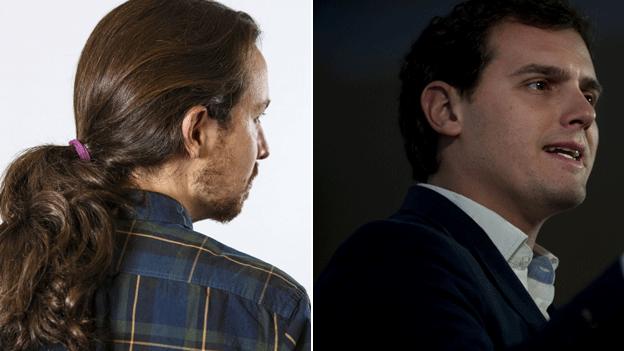Spain's new faces in election campaign
- Published
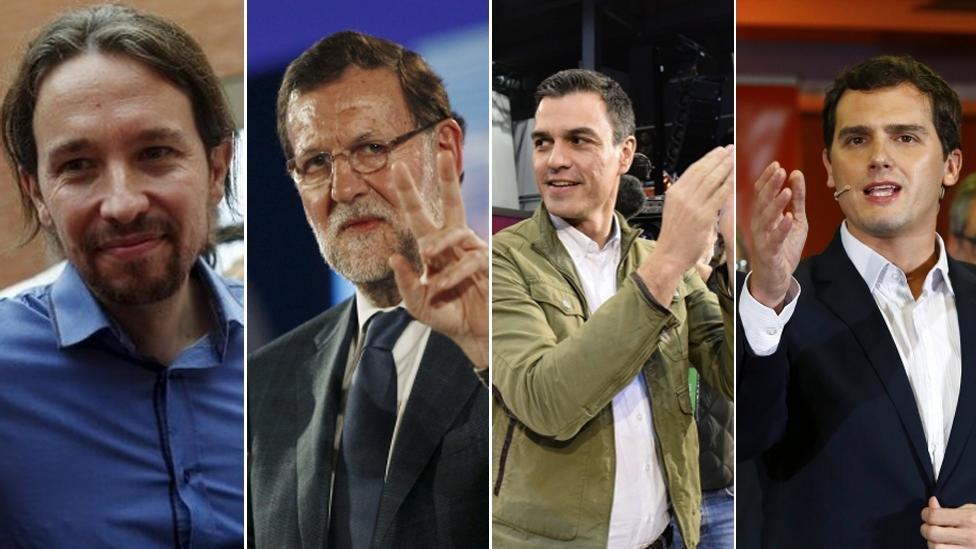
Spain's two party system is now a four-way fight between leaders Pablo Iglesias, Mariano Rajoy, Pedro Sanchez and Albert Rivera (L-R)
On the face of it, it is an election that will change the face of Spanish politics.
As campaigning officially gets under way for the general election on 20 December, there are new political figures on the block.
Firstly there is Albert Rivera, a dashing 36-year-old Catalan, whose party, Ciudadanos (Citizens) has burst onto the scene, apparently stealing much of the centre ground.
And then take Pablo Iglesias, a 37-year-old jeans-wearing, ponytail-sporting former university professor who leads the grassroots, left-wing movement born from the economic crisis called Podemos (We can). His allies swept to power in several big Spanish cities in regional elections back in May.
Both men sell themselves as a new brand of politician.
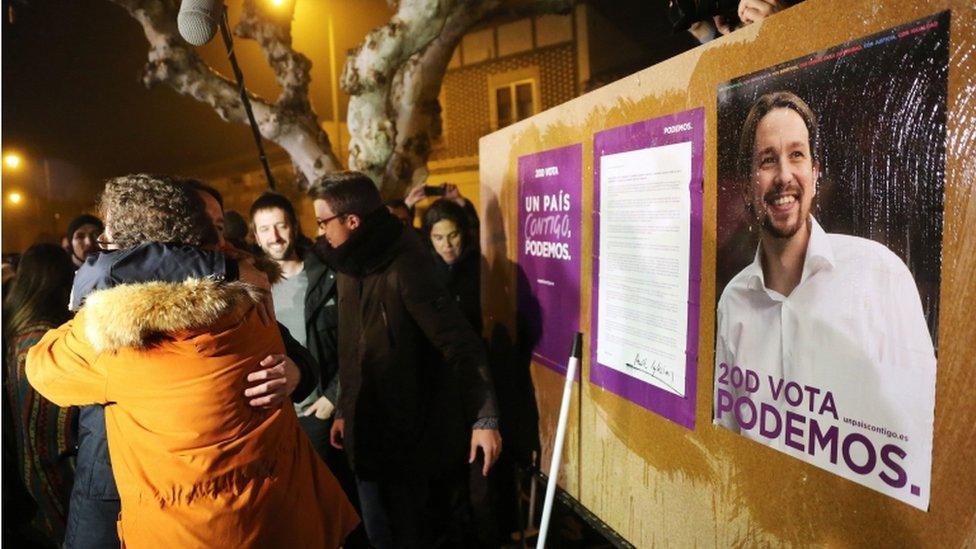
Podemos hopes to continue the success it saw in the regional elections
Mr Iglesias says the rich should pay more to end poverty and he would force King Felipe to stand in an election for the position of head of state.
Mr Rivera is socially liberal, but committed to free-market economics.
They both claim they will end corruption. Scandals have plagued Spain's traditional parties in recent years.
Making headlines
An impromptu exchange on the issue of corruption between Mr Iglesias and Celia Villalobos, a senior figure from the ruling Popular Party (PP), was trending on Twitter this week.
She warned him not to go around accusing all of her party of being corrupt.
Spain's incumbent prime minister, the slightly dour Galician, Mariano Rajoy, made other headlines.
First he was criticised for not appearing in a debate. An empty lectern alongside the three other candidates was one of the top images of the pre-election campaign week.
But the contrast between Mr Rajoy's non-appearance, and then his appearance in a Spanish celebrity's kitchen for an overly friendly interview could not have been greater.
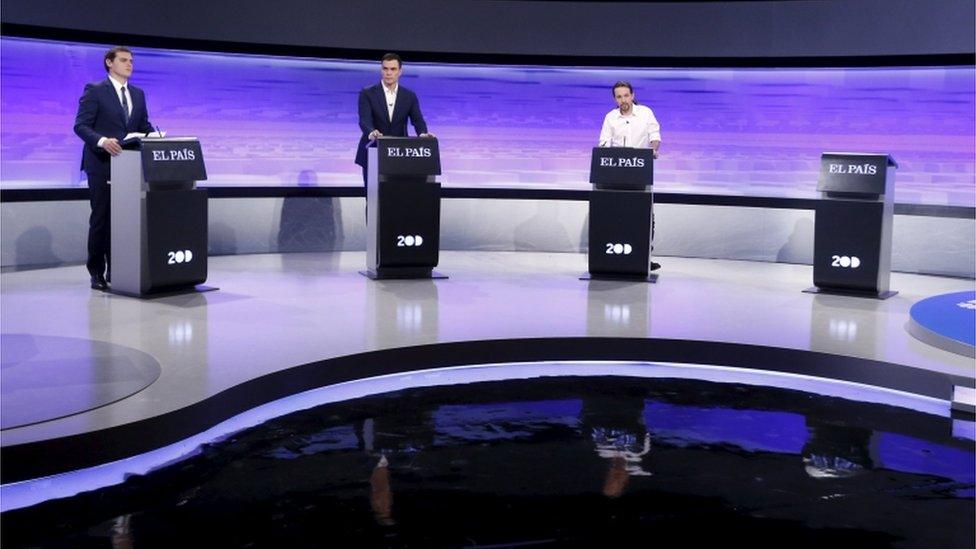
Mariano Rajoy's absence left an empty lectern during a pre-election TV debate
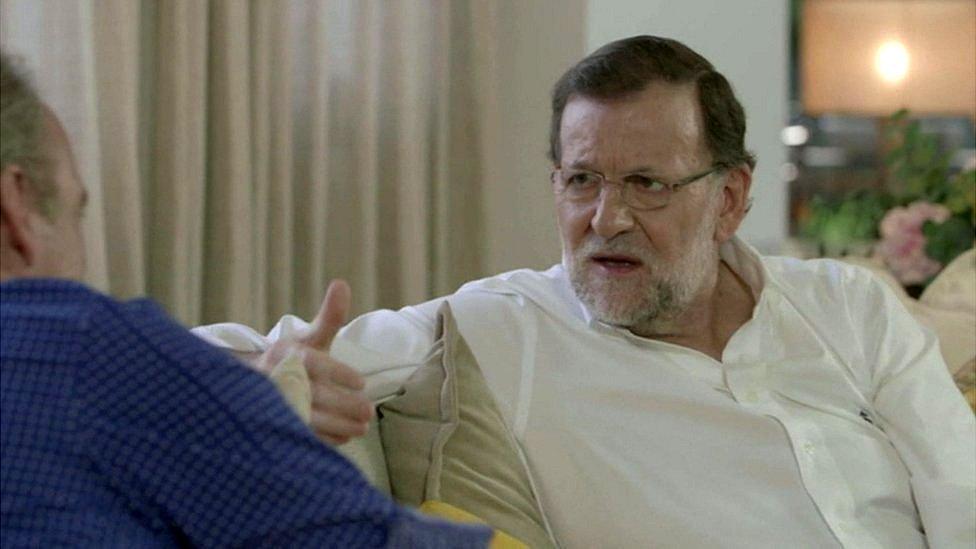
However Mr Rajoy did appear in conversation with Spanish TV personality Bertin Osborne
The latter felt more like a political advert, broadcast on Spain's public broadcaster, TVE.
Soft questions, a biography, cheesy music and slow-motion shots of the two men walking only give ammunition to the critics that say Spain's public broadcaster is not independent.
However despite all the talk of change, according to the polls Mr Rajoy's party will be in the driving seat to form a government after the election, come 21 December.
Unpredictable
It is true that we should not underestimate the seismic shift that is taking place in Spanish politics.
The political tennis match of the past in Spain, where for 33 years the ball of power was knocked back and forth between Mr Rajoy's PP and their rivals the Socialists (PSOE), is no more.
The two-party game is over.
One thing that is almost certain is that no party will get an overall majority in the Spanish parliament.
Mr Rajoy will tell voters their money is safe in his hands: that his party takes the credit for Spain's economic recovery and that there is more to do.
Some Spanish voters are yearning for something new, to do away with the politics of the past.
But others might opt for more of the same.
It is arguably modern Spain's most unpredictable election to date.
- Published25 May 2015
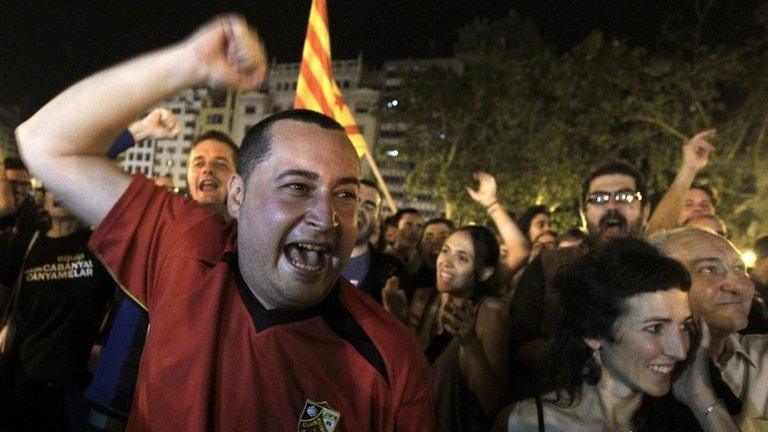
- Published29 July 2015
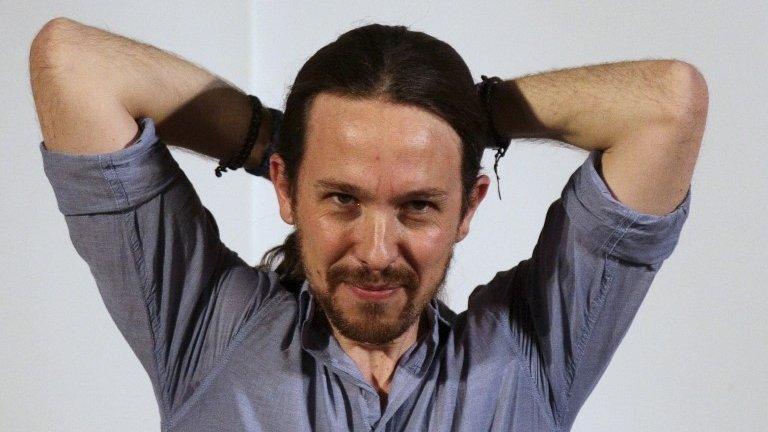
- Published14 March 2015
